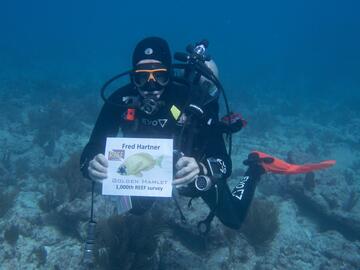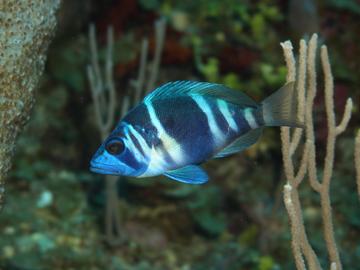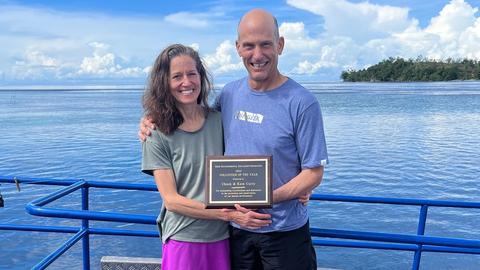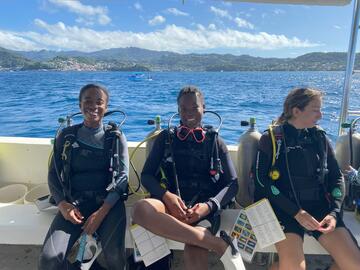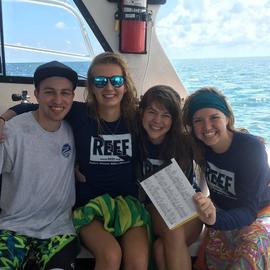Predation by the invasive Indo-Pacific lionfish impacts native fish populations within the Caribbean region and threatens to expand further into Brazil and the Mediterranean. Identifying the range-restricted native fish species with high predation vulnerability in these areas ahead of the invasion front combined with the knowledge of the time a lionfish population typically takes to reach dangerously high densities could help conservation planners attain positive outcomes and reduce biodiversity loss.
Current search
Search found 303 items
- tropical western atlantic
Congratulations to Fred Hartner, who recently joined the Golden Hamlet Club! This distinguished group is made up of highly dedicated volunteers who have conducted 1,000 or more REEF surveys as part of the REEF Volunteer Fish Survey Project.
Are your gills drying out in self-quarantine? Grab your laptop, tablet, or even a smartphone and join us for our next Fishinar, Fishes of Guanaja, on Thursday, April 16 at 8:00pm EDT! Instructor Janna Nichols will teach you tricks to identify the fishes of deep walls and tranquil gardens of Guanaja, located in the Bay Islands of Honduras - part of our Tropical Western Atlantic survey region. Fishinars are free webinars that will teach you the finer points of fish ID.
We are thrilled to share that Chuck and Kara Curry are our 2022 REEF Volunteers of the Year. Chuck joined REEF in 2013, and Kara joined a few years later in 2016, after meeting Chuck during a dive trip to Cuba. Since then, they have both joined the ranks as some of the top surveyors for the REEF Volunteer Fish Survey Project. Collectively, they have submitted over 2,500 surveys in the VFSP database. In 2022 alone, they conducted 448 surveys. Unsurprisingly, Chuck and Kara have both achieved the coveted Golden Hamlet award for submitting over 1,000 surveys.
Supported by a grant from the Society of Conservation Biology, REEF Ocean Explorers Education team member Madalyn Mussey recently traveled to the southeastern Caribbean island of Grenada to teach fish ID and REEF survey methods to college students. Known as the the Aqua Rangers, these Grenadian students protect their island resources and learn career skills to boost their blue economy.
Our online programs are free and open to all! Check out what's coming up, and view the entire schedule of Fishinars and other online programs here.
KEY LARGO, Fla. – The Reef Environmental Education Foundation has adapted its popular classroom course into a home study DVD package aimed at beginning “fishwatchers.” Reef Fish Identification – A Beginning Course teaches the basics of “fishwatching,” including identification of 50 commonly sighted species found in the tropical western Atlantic. A waterproof fish identification booklet, underwater survey slate and REEF survey materials are included. The DVD course is available online at www.REEF.org and at dive retailers and resorts.
This summer, REEF will host our second Reef Fish Field Methodology Course in Key Largo, Florida. This one week hands-on course is designed for college undergraduates and recent graduates aspiring towards a career in marine biology or a related field. The course covers commonly used tools and techniques for visual assessments of reef fishes.
Learn to ID common reef fishes of the Tropical Western Atlantic through virtual practice and how to become a citizen scientist for Reef Environmental Education Foundation (REEF). Fishes commonly seen in Sebastian Inlet will also be presented.

